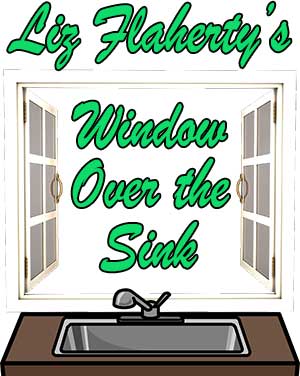Every six
months as part of my MS treatment, I have an infusion of Ocrevus.
It’s the newest drug to treat Primary Progressive Multiple
Sclerosis. As new as it is, scientists and doctors will tell you that you need it.
They say it can stop the progression of the disease and limit attacks.
The only way to measure the drug’s success is through MRI’s to
look at your lesions to see if there is any activity or any newones. Also
done every six months, my MRI showed nothing had changed.
I am stable,
and when I hear that I am amazed―I mean in the true definition.
Which brings me to something I’d like to share with you today.
The nurse
who administered my infusion was really a pleasant person.
She asked me
a number of times if I was feeling ok or if I needed
anything.
When it was over she said to me, “You did amazing!”
The
dictionary meaning of amazing is to affect with great wonder &
astonishment.
So, did I really do amazing? Was she really amazed? I’m
not sure. I
don’t think my infusion affected the nurse with great wonder
or
astonishment. It was a strange pick – you know, of all the words to
choose from.
Why didn’t she say, “You tolerated this well?” That’s really
what I did.
Or “You didn’t complain” which means to express feelings of pain or
dissatisfaction.
Let’s face it—we don’t use our own English language in
the right
way.
But back to
the word amazing. It has become increasingly
popular.
When you hear politicians speak, they tell you they have
amazing
ideas. When an actor or singer accepts an award, they say they
feel
amazing. When you hear someone describe something beautiful,
they will
say it looks amazing. Do these things really affect us with
wonder and
astonishment? If so, the politician’s amazing ideas translate
to “they
have great wonder?” Is he wondering if they’ll work? Maybe,
but wouldn’t
it be better for the politician to actually describe the ideas
as they are
rather than amazing? Then there’s the actress that accepts
the award―is
she astonished that she won? Like she wasn’t expecting
to, she
wondered? I just think the actress would have been more suited
to say it
was mind-blowing―meaning intensely affecting the mind and
emotions. Or
when expressing feelings, use of the words emotion and
affect would
be more in tune. And lastly, if it’s beautiful, it must be
amazing,
right? Why can’t beautiful things remain beautiful, not
necessarily
amazing.
I’m to the
point where I just hate to hear anyone use it. Everything is
not always
amazing. As a matter of fact, the use of the word for me
means I have
truly experienced something that astonished me―filled
me with
wonder, as the definition says. I just don’t like that amazing has
become
overused. Maybe if it wasn’t, I would feel differently. The word
just seems
to have lost its luster and its impact.
I challenge
each of you to keep a log for day, marking down how many
times
someone says the word. I did it one day before I sat down to
write this…you
know, because I don’t have much to do these days.
Since I was
going to my grandson’s birthday party, it was a great time
for my
observations. I’d say there were 30 people there. I didn’t do a
great job of
counting how many times I heard the expression once I got to 20, but it was in
excess of that and the party only lasted two hours.
So, when I
hear people say, “it’s amazing, even though it doesn’t
usually
apply, I just say, “Yes, it’s amazing.”



 in front! She also had a finished basement with its own kitchen! In the living room part of the basement, there was a cabinet Victrola with a stack of records. They were tinny and scratchy and it was hard to get them going the right speed with the crank, but there was such safety lying on the rug listening to Bing Crosby and Dinah Shore.
in front! She also had a finished basement with its own kitchen! In the living room part of the basement, there was a cabinet Victrola with a stack of records. They were tinny and scratchy and it was hard to get them going the right speed with the crank, but there was such safety lying on the rug listening to Bing Crosby and Dinah Shore.










.jpg)





